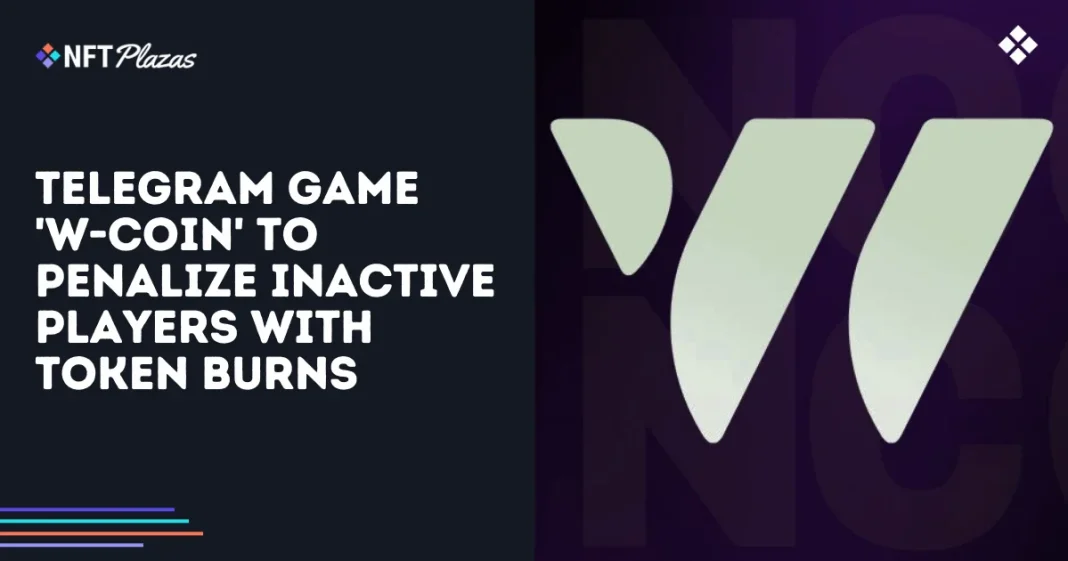Telegram-based tap-to-earn game W-Coin has introduced a controversial policy that will penalize players who remain inactive for three days by burning 5% of their token supply each day until they log back in.
The move, announced ahead of the game’s token launch and airdrop on The Open Network (TON) in December, has sparked debate among players.
Whilst the developers argue that the policy is aimed at fostering an active player base, critics have questioned its fairness.
 Source: W-Coin
Source: W-CoinDetails of the Inactivity Rule
W-Coin’s new inactivity rule applies to all players who fail to log in for three consecutive days, resulting in a daily 5% reduction of their token holdings until they return. According to W-Coin’s announcement, this measure is intended to ensure that only active participants influence the in-game economy, whilst also potentially increasing the token’s value ahead of its December launch.
However, this policy stands out as unusually strict compared to similar games in the genre. For instance, X Empire, another tap-to-earn game, allows players a 30-day inactivity window before any tokens are affected. W-Coin’s three-day limit has raised concerns among players, particularly casual users who may not log in daily.
Premium players subscribed to the W-Galaxy tier are exempt from the inactivity burn. W-Galaxy subscriptions are available at two tiers—Lite and Complete—priced at 149 and 249 stars, respectively. Stars, the Telegram-based virtual currency used in the game, are sold in bundles starting at 250 stars for £5.94, effectively making inactivity immunity a paid privilege.

 Source: W-Coin
Source: W-CoinUpcoming Token Launch and Airdrop
The policy comes as W-Coin gears up for its token launch on TON in December, followed by a large-scale airdrop distributing 70% of the total token supply to eligible players. To determine allocations, W-Coin conducted a “snapshot” in October, a process that records player data and progress on-chain. A final snapshot is expected closer to the launch date.
The airdrop is a significant milestone for the game, with developers highlighting the importance of rewarding active and engaged players. However, the strict inactivity penalty has drawn mixed reactions.
Some players appreciate the potential for increased token value due to reduced supply, whilst others feel the policy unfairly punishes casual participation in a genre often characterized by its low commitment requirements.


